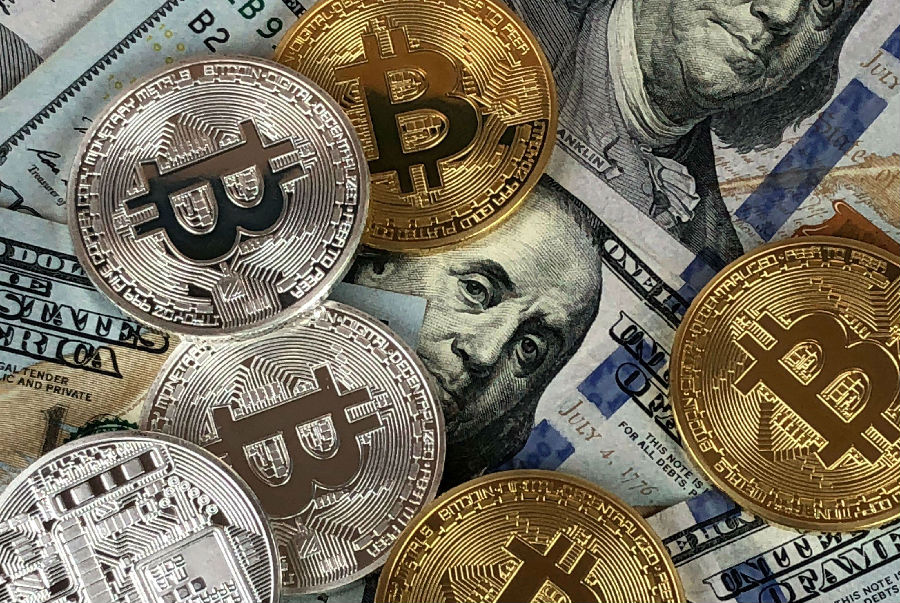Legal tender is ordinarily defined as the money that courts of law must accept to settle debts.
法定貨幣通常是指法庭為清償債務(wù)所必須接受的貨幣。
But El Salvador’s bitcoin law goes further, saying that businesses must accept the cryptocurrency as payment for goods or services.
但薩爾瓦多的比特幣法律有過之而無不及,它規(guī)定企業(yè)必須接受顧客使用這種加密貨幣購買商品或服務(wù)。
It has also come into effect very quickly.
該法律的生效速度也很快。
Nayib Bukele, the country’s president, who controls a large majority in the legislative assembly, announced his plan to make bitcoin legal tender at a cryptocurrency conference on June 5th.
在6月5日的一次加密貨幣會議上,控制了薩爾瓦多立法議會多數(shù)席位的總統(tǒng)納伊布·布克爾(Nayib Bukele)宣布了將比特幣合法化的計劃。
The law was approved just three days later.
僅僅三天后,這項法律就得以通過。

Sceptics have posited that the move is just a stunt: a sop to Ibrajim and Yusef Bukele, the president’s brothers, who are crypto-enthusiasts.
持懷疑態(tài)度的人認(rèn)為此舉只是一種噱頭:是為了安撫總統(tǒng)的兄弟Ibrajim和Yusef Bukele,他們都是加密貨幣的愛好者。
But the president claims the move will help El Salvador win foreign investment and reduce the cost of remittances.
但總統(tǒng)聲稱此舉將幫助薩爾瓦多贏得外國投資,并降低匯款成本。
He may not be entirely wrong.
他的話或許有一番道理。
The gambit might lure in deep-pocketed crypto-investors (though it may deter more conventional ones).
這一策略可能會吸引財力雄厚的加密貨幣投資者(雖然它也可能會嚇退更傳統(tǒng)的投資者)。
And its experience may provide a case study in whether one of the long-touted benefits of bitcoin works for regular people.
薩爾瓦多的經(jīng)歷或許可以成為一個案例,用來研究長期廣受追捧的比特幣是否能在普通大眾中行得通。
A diaspora of some 2m Salvadoreans sends remittances worth 20% of GDP home each year.
每年,約200萬身處海外的薩爾瓦多人向國內(nèi)寄回的匯款總額,相當(dāng)于國內(nèi)生產(chǎn)總值的20%。
But cross-border bank and wire transfers are slow and expensive.
但是,跨境銀行和電匯既慢又貴。
Wallet-to-wallet bitcoin transfers are quick and free.
錢包到錢包的比特幣轉(zhuǎn)賬既快捷還免費(fèi)。
The attempt will probably reveal bitcoin’s limitations, too.
這次嘗試可能也會暴露出比特幣的局限性。
Many locals understandably fear its volatility, which makes it ill-suited for payments and debt.
許多當(dāng)?shù)厝藫?dān)心它的波動性,這完全可以理解,所以比特幣不適合用來支付和清償債務(wù)。
Those accepting it, like Leyendas, do not quote prices in it, but convert from dollars at the point of sale.
那些接受比特幣的公司,比如Leyendas,并沒有給出報價,而是在銷售時將其兌換成美元。
And there can be unexpected fees, which might stymie its use.
此外,還可能產(chǎn)生意想不到的費(fèi)用,這可能會阻礙它的使用。
There are 200 bitcoin cash machines being installed across the country to enable cash dollars to be converted into bitcoin in digital wallets.
目前,薩爾瓦多各地已經(jīng)安裝了200臺比特幣取款機(jī),讓人們把美元現(xiàn)金轉(zhuǎn)換成錢包里的數(shù)字比特幣。
The one used by The Economist took a 5% fee.
《經(jīng)濟(jì)學(xué)人》使用的取款機(jī)收取了5%的費(fèi)用。
“I am not going to use it,” says Irma Gómez, who runs a diner near one such ATM in Santa Tecla, a town just outside San Salvador.
“我不會用的,”Irma Gómez說,她在圣薩爾瓦多城外的圣塔特克拉鎮(zhèn)經(jīng)營一家餐館,附近就有一臺這樣的取款機(jī)。
But she is also intrigued. “Let the people try it.”
不過她也很感興趣。“讓別人先試試吧。”
譯文由可可原創(chuàng),僅供學(xué)習(xí)交流使用,未經(jīng)許可請勿轉(zhuǎn)載。











